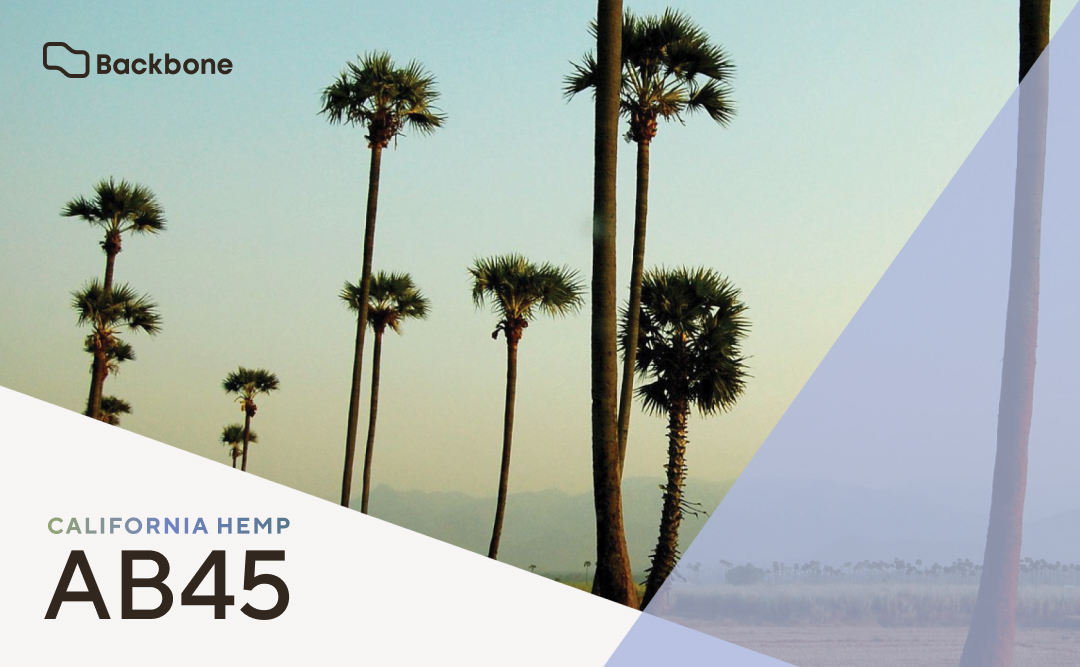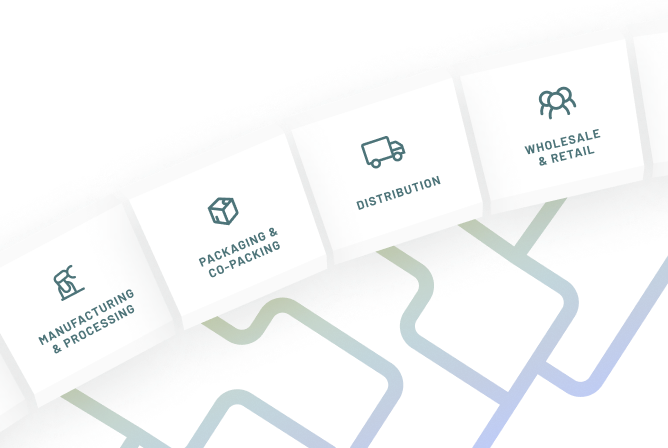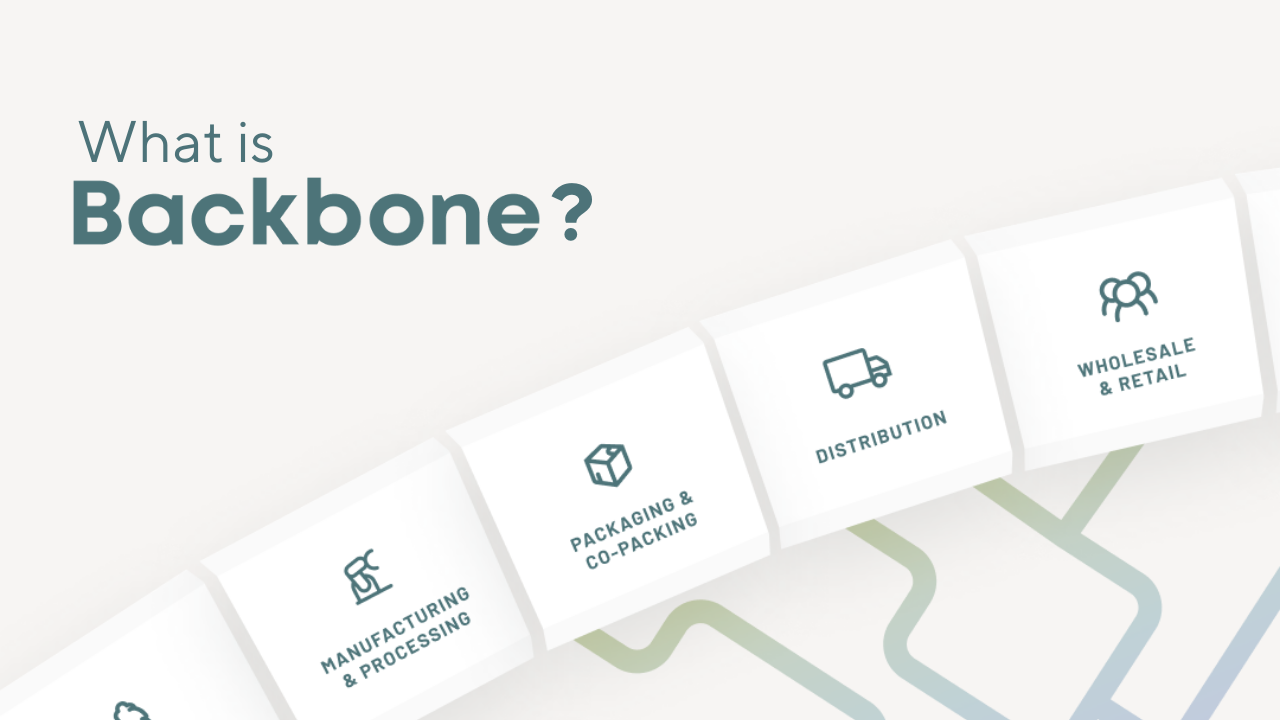
October 12, 2021
•6 min read
Gavin Newsom's AB45 Paving The Way For Legal Hemp-Derived CBD Market to Thrive in California
October 12, 2021
In hemp and cannabis, everything moves quickly, except for the law. After more than 2 years, California’s hemp farmers and manufacturers may start to see the regulatory structure they will operate under. Hemp-derived cannabidiol, a.k.a.CBD, is here to stay. And California is paving the way for other states to follow suit. Legally.
The Good News
AB45 was formally signed into law on October 6, 2021, by California Governor Gavin Newsom. The passage of this legislation immediately permits the sale of food, beverages, dietary supplements, pet products, and cosmetics containing hemp-derived ingredients including CBD.
The passage of AB45 overrides prior legal guidance from the state - July 2018 CDPH’s FAQ’s which outright prohibited the sale of all CBD products in California. AB45 finally creates the legal framework for CBD companies to legally operate within, which has been an otherwise gray area these past 5-6 years. AB45 also bans the sale of other hemp-derived cannabinoids that are found to be intoxicants such as Delta-8 and Delta-10.
The immediate effect of AB45 is twofold:
The sale of dietary supplements, food, beverages, pet foods, and cosmetics will not be deemed illegal simply because of the inclusion of hemp-derived extracts or derivatives, and
Dietary supplements, food, beverages, pet foods, and cosmetics shall not be considered ‘adulterated’ by the inclusion of industrial hemp-derived cannabinoids, extracts, or derivatives
In sum, these provisions make CBD products legal (except inhalable products - which we’ll get to in a moment) in the State of California. This is a giant leap forward from where the industry has been operating for years.
As such, manufacturers of hemp-derived CBD products will now have to comply with all the same registration, regulation, record keeping, and GMP requirements that the State imposes on all other food additive, ingredients, or supplement manufacturers.
The Details
AB45 states that “…a dietary supplement, food, beverage, cosmetic or pet food is not adultered by the inclusion of industrial hemp or cannabinoids, extracts or derivatives from industrial hemp if those substances meet specific requirements, and would prohibit restrictions on the sale of dietary supplements, food beverages, cosmetics or pet food that include industrial hemp or cannabinoids, extracts or derivatives from industrial hemp-based solely on the inclusion of those substances.”
Not unsurprisingly, AB45 goes on to mandate a registration process with the California Department of Public Health for all hemp manufacturers of “raw hemp extract”. This is intended to allow hemp manufacturers to operate with the compliance and transparency that the State would require from any other food product or food ingredient manufacturer.
Inhalable?
A prohibition or tax on smokable hemp products has been a hot topic lately. Initially, it appeared that these products would be banned outright in the legislation. However, after fielding invaluable industry feedback California instead decided to enact a temporary ban on the sales of these products, pending the creation and implementation of a tax on these products.
Until that tax is enacted the sale of inhalable hemp products will only be legal to customers outside of the state of California - which could be seen as a growing pain that the industry is simply going to have to endure in the meantime. This tax scheme could be enacted in 2 months or 2 years. Unfortunately, AB45 did not provide any further guidance on that front.
The ban on the sale of smokables appears to be temporary in nature but it is unknown how long it will take regulators to create a new taxation rate for inhalable hemp products. This means that all industrial hemp flower, distillate cartridges, and concentrates will be temporarily illegal until a tax rate is assigned to them.
Initial Resistance
Initially, AB45 was strongly condemned by cannabis industry interest groups who argued that parity and equal treatment under the law required hemp-derived CBD (and other cannabinoid compounds) to be taxed at a similar rate as cannabis products are currently taxed at. The United Cannabis Business Association (UCBA) strongly opposed AB45 in their Letter of Objection. They are a special interest group that lobbies on behalf of over 1300 California cannabis licensees from all the different areas of the cannabis manufacturing supply chain.
The UCBA successfully argued there’s parity between hemp and cannabis regulations and as such, hemp manufacturers should be required to test hemp crops for pesticides, heavy metals, and contaminants with the same level of granularity as cannabis crops are required to be tested at. The final version of AB45 now requires hemp manufacturers to engage in the same level of crop testing that cannabis manufacturers are required to engage in.
To Do's
AB45 insists that hemp manufacturers register with the California Department of Public Health (The CDPH) and maintain Good Manufacturing Practices (GMP). Manufacturers will be required to keep strong electronic/digital records of everything they are making and be able to trace things like material lineage. We interpret this provision to ultimately require all California hemp manufacturers to deploy a supply chain and inventory tracking system like Backbone. All of this makes logical sense if CBD manufacturers are going to begin to be treated like food manufacturers.
Additionally, out-of-state manufacturers that are importing or selling raw hemp extract in the State of California will now register with the CDPH Food and Drug Branch. This could potentially curtail the number of CBD products being imported or sold within the State of California. This provision also applies to the manufacturers of CBD pet products.
Another imposition on hemp manufacturers is the requirement that they obtain an ‘industrial hemp enrollment and oversight certificate’ from the CDPH in addition to registration. There will be a three-month window in which all hemp manufacturers must register with the CDPH.
Section 8 of AB45 deals with adulterated language for foods and dietary supplements. Cannabis edibles aren’t legally considered foods. “This is how they got around the FDA rule not allowing cannabis to be put into foods” according to Orange County, Cannabis Corporate Law Firm Attorney Dana Cisneros.
This legislation is a big deal and is creating a framework that other states could follow. Hemp and CBD products are sought after for a number of reasons and consumers ultimately want safe products that are easily accessible. We are living in historic times as lawmakers and industry entrepreneurs work together to create real-world solutions with a plant that has been unavailable legally for decades. We applaud all of those who are helping to move the sector forward and are overwhelmingly optimistic about the future of hemp and cannabis globally.



